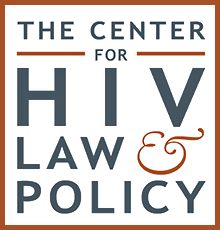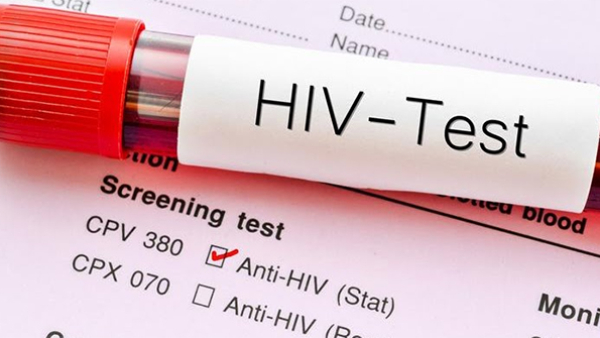Overview
Oklahoma criminalises non-disclosure through an HIV-specific law introduced in 1997. This law has been used to prosecute HIV cases on a number of occasions, and general criminal laws have also been used to do so at least once.
The HIV-specific provision makes it an offence for anyone living with HIV to engage in conduct ‘reasonably likely’ to result in the transfer of blood, bodily fluids containing visible blood, semen, or vaginal secretions into the bloodstream or through the skin of another. The law includes a requirement of ‘intent to infect’, and the ‘crime’ is committed through consensual acts where HIV status was not disclosed as well as non-consensual acts. There is no requirement for transmission, and no need to prove that fluids were actually transferred. The law is silent on the use of condoms or adherence to antiretroviral treatment, as defences. This offence is a felony carrying a penalty of up to five years’ imprisonment.
Although the law suggests that only people with ‘intent to infect’ could be prosecuted, the courts have convicted people seemingly without clear evidence of this intent. Case reports suggest that a lack of disclosure is the key factor in prosecuting people living with HIV in Oklahoma, such as in a 2016 case where the maximum sentence of five years’ imprisonment was imposed for HIV non-disclosure. We are also aware of cases for biting and spitting, although there appears to be no suggestion that the saliva contained visible blood as is required by the law. These cases demonstrate that the interpretation of the law is much broader than the letter of the law.
Oklahoma law also includes a sentence enhancement provision for sex work offences committed by people living with HIV. The law criminalising ‘prostitution’ is generally a misdemeanour offence carrying a penalty of up to one year imprisonment, but this is increased to a felony with up to five years’ imprisonment if committed by someone living with HIV. The offence includes a broad range of conduct including oral sex, masturbation, and ‘lewdness’, which essentially includes any sexual behaviour, meaning that people living with HIV can face much harsher penalties under this provision for sexual acts which carry no risk of transmission, or even where no physical contact is made. We are aware of at least one case under this law.
There is also a general disease ‘exposure’ provision under the law which makes it an offence for anyone living with any ‘contagious disease’ to ‘wilfully expose’ themselves to the public. This is a misdemeanor with a penalty of up to one year imprisonment and a fine, though we are not aware of any HIV cases under this law.
The general criminal law has been used to prosecute HIV ‘exposure’ in at least one case. This case in 2000 was one involving sexual assault of minors for which the person was convicted for multiple counts of sexual assault, however his HIV status triggered an additional charge of attempted murder as it was argued by the prosecution that the defendant had repeated unprotected sex with one victim, and HIV was transmitted to both her and her unborn baby.
Public health laws require people living with STIs, which by definition includes HIV, not to refuse treatment or examination, and permit their mandatory isolation and quarantine. Non-compliance with these regulations can result in prosecution and misdemeanour conviction of up to 30 days’ imprisonment.
In 2019 an unsuccessful attempt to reform the HIV-specific law was made. House Bill 1858 would have changed the law to require proof of a ‘substantial risk of transmission’ of HIV rather than reasonable likelihood of transmission of fluids, as well as insert an explicit defence where the person living with HIV adheres to recommended medical treatment. It would also have lowered the penalty to a misdemeanour with a sentence of up to one year imprisonment. The law died in committee stage. In November 2023, another attempt at reform, House Bill 2342, this time a full repeal of all HIV criminalising laws, failed to be adopted. This attempt did however see a bill of this nature receive a congressional hearing for the first time, and advocates have vowed to continue the repeal efforts into the future.
Conversely, in April 2024 a proposal was made to expand the law prohibiting the spread of STIs (not including HIV) to include most commonly transmitted conditions. Given the extremely common nature of these conditions, and the fact that the law allows for both intentional and reckless transmission, critics argued virtually all adults could be liable under the law. Similarly, they argue that proponents of the law have failed to learn from the misguided criminalisation of HIV transmission, which has had no positive effect on reducing its spread. In June, the passage of this bill was stopped following advocacy by state and national civil society.
Most recently, in August 2024, it was reported that an interim study had been commissioned in the state senate to review the laws on HIV and STIs in Oklahoma. State Senator Julia Kirt, co-sponsor of the study, highlighted that the laws deter testing and increase stigma. Civil society, including local organisation Freedom Oklahoma, has been advocating for reform and is a supporter of the study.
For a detailed analysis of HIV criminalisation in Oklahoma, as well as all other US states, see the Center for HIV Law and Policy report, HIV Criminalisation in the United States: a Sourcebook on State and Federal HIV Criminal Law and Practice.
Laws
Oklahoma Statutes § 21-1192.1
Knowingly engaging in conduct reasonably likely to transfer HIV virus
1. It shall be unlawful for any person knowing that he or she has Acquired Immune Deficiency Syndrome (AIDS) or is a carrier of the human immunodeficiency virus (HIV) and with intent to infect another, to engage in conduct reasonably likely to result in the transfer of the person’s own blood, bodily fluids containing visible blood, semen, or vaginal secretions into the bloodstream of another, or through the skin or other membranes of another person, except during in utero transmission of blood or bodily fluids, and:
2. The other person did not consent to the transfer of blood, bodily fluids containing blood, semen, or vaginal secretions; or
3. The other person consented to the transfer but at the time of giving consent had not been informed by the person that the person transferring such blood or fluids had AIDS or was a carrier of HIV.
4. Any person convicted of violating the provisions of this section shall be guilty of a felony, punishable by imprisonment in the custody of the Department of Corrections for not more than five (5) years.
Oklahoma Statutes § 21-1031
Knowingly engaging in prostitution while infected with HIV
[…]
B. Any person who engages in an act of prostitution with knowledge that they are infected with the human immunodeficiency virus shall be guilty of a felony punishable by imprisonment in the custody of the Department of Corrections for not more than five (5) years.
[…]
Oklahoma Statutes § 21-1199
Contagious disease, exposing oneself or another with
Every person who willfully exposes himself or another person, being affected with any contagious disease in any public place or thoroughfare, except in his necessary removal in a manner not dangerous to the public health, is guilty of a misdemeanor.
Further resources
Not all laws used to prosecute people living with HIV in this state are included on this page. For a comprehensive overview and analysis of HIV-related criminal and similar laws and policies, visit The Center for HIV Law and Policy










